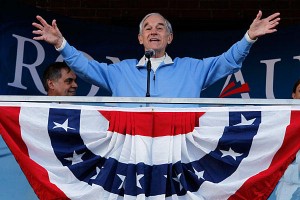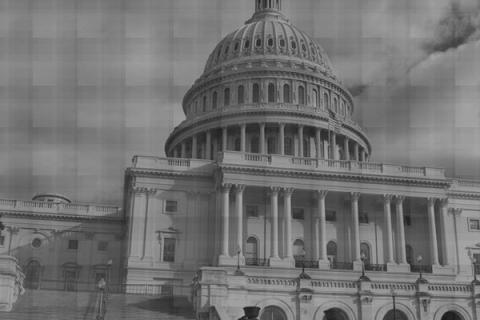As most of the GOP presidential candidates will be rallying the party base at next week’s Conservative Political Action Conference (CPAC), Texas Congressman Ron Paul won’t be present at what’s billed as "the largest annual gathering of conservative activists." Instead, he’s hitting the campaign trail in the independent voter-populated state of Maine.
“While we will miss Congressman Ron Paul, a perennial favorite among our attendees, we are honored to host Senator Rand Paul, a leader of the next generation of committed constitutional conservatives, at CPAC 2012,” said Al Cardenas, chairman of the American Conservative Union, in a statement that announced the elder Paul’s absence and the younger one's attendance.
Contrary to the raised conspiracy that the Republican party establishment had excluded the libertarian-minded candidate, it was actually Dr. Paul who declined a speaking invitation to the event. In doing so, Paul has foregone the tradition of mobilizing enthusiastic supporters to vote at the CPAC presidential straw poll, one that's played a part in upstaging the other Republican candidates the past two years. The congressman’s decision seeks to shift that popularity to Maine’s caucuses, a move that could be key in racking up a significant amount of the state’s 24 delegates.
Former Massachusetts Governor Mitt Romney won the caucuses in 2008 with 52% of the vote. Paul placed third in 2008 with a little more than 18% of the vote, which was just 178 votes shy of Senator John McCain’s second place finish.
This time around, given the strong case for the congressman’s electability on a broad scale, he could have a legitimate chance of picking up some steam in the caucuses. In comparison to the other GOP candidates, it’s being reported that he has a well-organized effort on the ground in building a relationship with voters.
Longer term, what will be key with the current candidates courting Maine is which one can best appeal to its significant presence of voters registered as Independents. As noted previously, Independents have at times challenged the Republican-Democrat political system, at least at the state level. It’s not far-fetched to say that the same mindset could spill over into this presidential election.
Showing themselves willing to venture outside the traditional political lines, voters have elected at least two Independent governors in Maine. They’ve been known for being more moderate. Upwards of 37% of the state has been registered as Independent, outnumbering the other two parties.
Although Maine has voted fairly consistently for the Democratic presidential ticket, what might happen this time around is still up in the air. Gallup polling recently noted that Maine’s approval of President Obama is still below 50%. It is these converging factors that might just make Congressman Ron Paul a legitimate contender, both in the GOP caucus and potentially in the general election.

